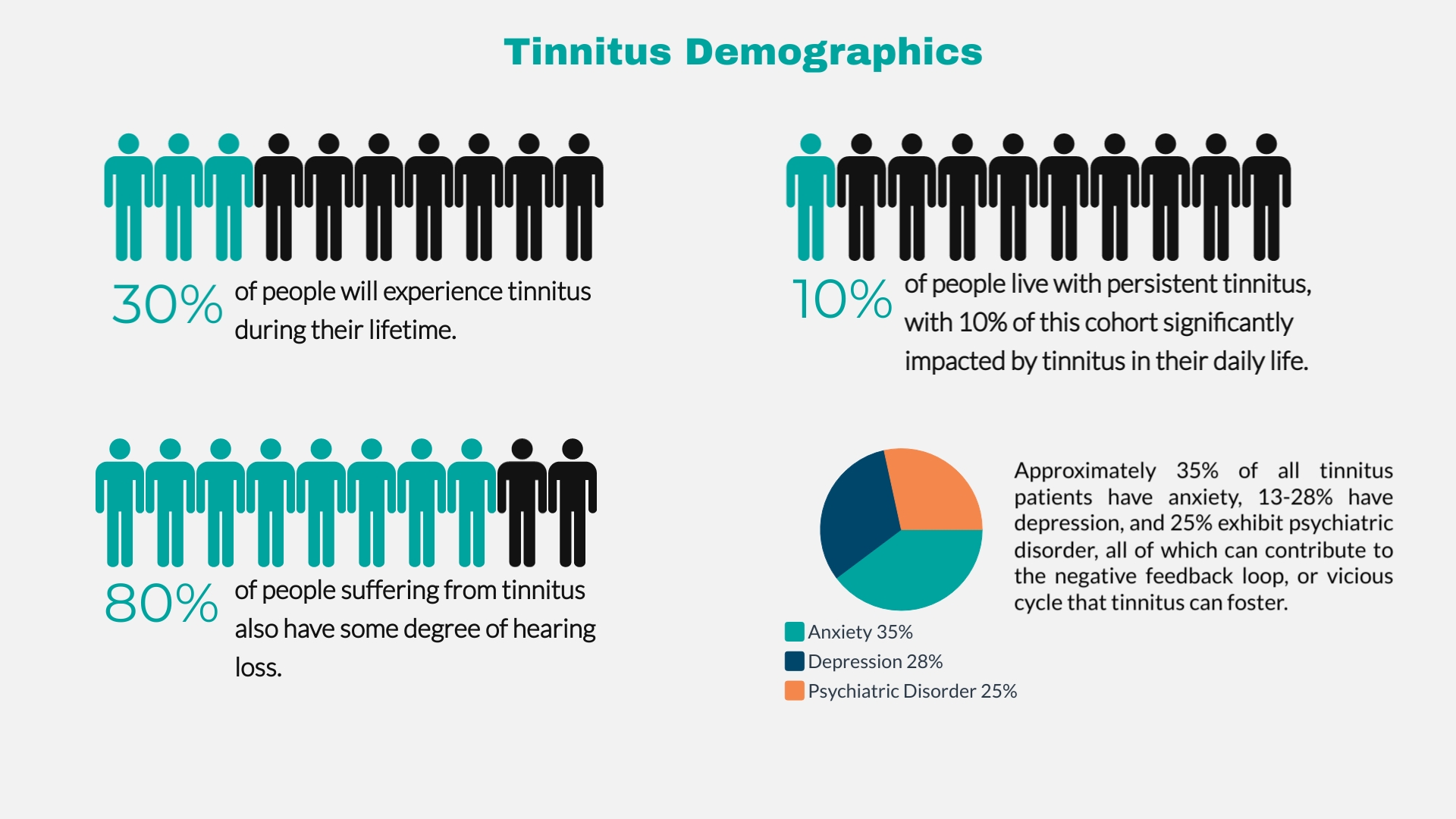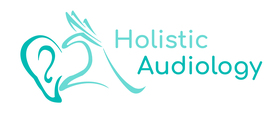There are many myths about tinnitus. The challenges associated with experiencing tinnitus can be related to a combination of factors; such as, stress, insomnia, emotional distress and functional impairments that adversely affect one’s quality of life. Understanding how you experience tinnitus and its related symptoms will help you tailor ways to best deal with your specific tinnitus.
- Tinnitus is generally associated with some form of hearing loss or trauma to the hearing system. Trauma or initial damage to the hearing system may remain undetectable to current testing protocols in the earlier stages, though may manifest as difficulty with higher order processing, such as experiencing difficulty understand speech in challenging environments.
- The experience of tinnitus varies widely and is specific to each individual. Common words to describe tinnitus include ringing, whistling, hissing, roaring and humming.

Tinnitus Assessment
A comprehensive tinnitus assessment comprises of a detailed case history. Tinnitus symptoms can be a warning signal for more serious diseases requiring medical attention; such as, single-sided tinnitus and pulsatile tinnitus. A complete hearing assessment is also necessary to better ascertain the nature of the tinnitus, and if there is any associated hearing system damage.
The key component to the tinnitus assessment is evaluation of the tinnitus through a range of measures that examine its subjective and objective symptoms, as well as, the impact of the perceived tinnitus on your sense of wellbeing.
Tinnitus Management
Often clients have heard that there is no cure for tinnitus and nothing can be done about it. Fortunately, there are in fact many options available to help you deal with your tinnitus. Depending on the assessment findings, one tinnitus management modality or a combination of tinnitus treatment modalities may be the most appropriate for you.
Tinnitus management options currently used worldwide include tinnitus-specific hearing aids, sound therapy devices and counselling therapies. As medical advancements progress, experimental treatments such as laser therapy may become available in the future.
Together We Can Address Your Tinnitus
Our Readers Also Like…
Research has unveiled a compelling connection between hearing aid use and cognitive health, particularly in reducing the risk of dementia.
Optimising Ear & Hearing Health is one of our vital senses that lets us be connected and engaged with the world around us. It is often taken for granted...
Optimising Your Communication Abilities & Quality of Life ‘I hear, but don’t understand. ’‘Huh, what did you say? ’‘Can you repeat?" Hearing loss and related ear disorders can pose substantial negative impacts on...



